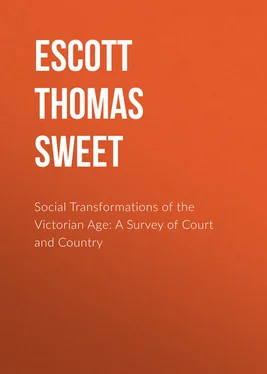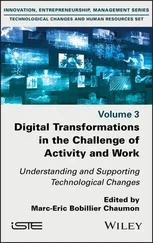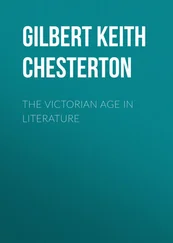Thomas Escott - Social Transformations of the Victorian Age - A Survey of Court and Country
Здесь есть возможность читать онлайн «Thomas Escott - Social Transformations of the Victorian Age - A Survey of Court and Country» — ознакомительный отрывок электронной книги совершенно бесплатно, а после прочтения отрывка купить полную версию. В некоторых случаях можно слушать аудио, скачать через торрент в формате fb2 и присутствует краткое содержание. Жанр: foreign_antique, foreign_prose, на английском языке. Описание произведения, (предисловие) а так же отзывы посетителей доступны на портале библиотеки ЛибКат.
- Название:Social Transformations of the Victorian Age: A Survey of Court and Country
- Автор:
- Жанр:
- Год:неизвестен
- ISBN:нет данных
- Рейтинг книги:3 / 5. Голосов: 1
-
Избранное:Добавить в избранное
- Отзывы:
-
Ваша оценка:
- 60
- 1
- 2
- 3
- 4
- 5
Social Transformations of the Victorian Age: A Survey of Court and Country: краткое содержание, описание и аннотация
Предлагаем к чтению аннотацию, описание, краткое содержание или предисловие (зависит от того, что написал сам автор книги «Social Transformations of the Victorian Age: A Survey of Court and Country»). Если вы не нашли необходимую информацию о книге — напишите в комментариях, мы постараемся отыскать её.
, J. T. Delane, on horseback. The absence in later days of eminent individuals like these; the old editor and the new. A. W. Kinglake among the last riders in Hyde Park of veterans who write. Commerce in the Park and in society represented by ‘King’ Hudson before and after his fall. Lord Tollemache, of Peckforton, the last of great nobles familiar to English crowds.
Social Transformations of the Victorian Age: A Survey of Court and Country — читать онлайн ознакомительный отрывок
Ниже представлен текст книги, разбитый по страницам. Система сохранения места последней прочитанной страницы, позволяет с удобством читать онлайн бесплатно книгу «Social Transformations of the Victorian Age: A Survey of Court and Country», без необходимости каждый раз заново искать на чём Вы остановились. Поставьте закладку, и сможете в любой момент перейти на страницу, на которой закончили чтение.
Интервал:
Закладка:
The demoralizing effects of public executions were exposed by Thackeray. His essay, ‘Going to see a man hung’ gave shape, and eventually success to the movement for the hanging of criminals within, and not outside, the prison walls. So, at an earlier day, Dickens, who of all our greatest writers was the first to interest the public in the waifs and strays in the London streets, had initiated in Oliver Twist a social demand for workhouse reform. The best causes are liable to abuse and caricature. There have been moments when, since the Mayhews wrote, sympathy with the lot of the London poor has seemed in danger of becoming overdone, or being degraded into a fad, a craze, a fashionable hobby, and thus of ceasing to be an actuating conviction. The modish popularity of ‘slumming’ as it used a few years ago to be called had of course its absurd aspects, but was, nevertheless, not an unhealthy sign. It could be compared to the froth upon the surface which concealed, and did not necessarily weaken, the stimulating and strengthening qualities below. Whether this philanthropic curiosity was displayed in town or country, the social truth of which it constituted evidence was that the commercial spirit and its harsher influences, not unfortunately uncommon among the upper classes in the early days of the new poor law, were becoming obsolete, and that the class fusion born of class sympathy to which De Tocqueville has attributed our later freedom from organic revolutions was in steady process of evolution. Edward Denison came first of all, and could only see with the eye of faith the fruits which his example was to bear in the beneficent experiment of Arnold Toynbee and in the People’s Palace. So it has continued, till to-day the University and public school settlements in the East End of London and in other great cities are institutions not less deeply rooted than the parochial system itself. The kindly work is not confined to a single sex. St Margaret’s House, Bethnal Green, the ladies’ branch of the Oxford agency, presided over by Mrs Burrows, is as firmly established as the homes founded by Trinity or Christ Church in the same neighbourhood. Throughout the English speaking world, the same beneficent inspiration seems to have been almost simultaneously operative. One hears of analogous enterprises in the great cities of Australia and in the United States. The American movement even claims seniority over the English. Andover House, Boston, was in full working order before the cognate agencies in our own capital were complete. The devotion of Trade Unionists to their Union has been employed as a figure to illustrate the mutual loyalty to a great and good idea of those brought up in the same College or University or public school. This reciprocal enthusiasm has now been active and productive long enough to entitle it to the praise of solidity and permanence. The public and legal provisions for quickening the sense of citizenship in town and country will presently be examined in detail. That which seems important to bear in mind is that the legislature did not interpose its machinery until the private agencies, social or moral, already recapitulated, had done their work. Even the improvement in the open spaces of the capital which is so marked a feature in metropolitan progress during the last few decades, has been helped or encouraged largely by private initiative. The late Mr Matthew Arnold recognized as a graceful and original act of public service, the transport of Cleopatra’s Needle from Alexandria to London at the cost of Sir Erasmus Wilson. Before the obelisk was established on the Thames Embankment the municipal authorities had prepared a home for it and converted into daintily kept pleasure grounds the little enclosures by the side of the riverain promenade.
CHAPTER VII
THE NEW ERA IN ENGLISH PARISHES
Reflection of the Estates of the Realm in the old divisions of rural life in England. Modifications in the system introduced by recent changes in local government. The English village as it now is. The public house as a place of resort largely displaced by the parish meeting room. The quickened sense of civic life shown in the speech and bearing of the villagers. The exact functions of the Parish Council, or Meeting. Relations between Parish and District Councils. Retrospect of English Poor Law system. Greater popularity of the District Councils. Other duties than of Poor Law Guardians discharged by District Councils. Clergy and Squires. How affected. District Board’s composition. Its relations with magistrates, and popular feeling.
Before 1894, English parishes in rural districts possessed, as they still do, three centres of local life. The State was represented by the squire, or chief landowner, often, as may still be the case, an absentee. The Rectory, or Vicarage, with the neighbouring church was the geographical depository of spiritual power. The village inn, or public house, was the place of popular meeting, and with its adjoining skittle-alley was the source of popular amusement. Here the gossip of the neighbourhood was discussed, or the local newspaper read. London journals did not, and do not, often enter remote neighbourhoods in the provinces. The doings of the Imperial Parliament, or the Concert of the European Powers were, as they remain, of little interest to the rural tillers of the soil in comparison with the wages paid by the farmers in the district, the supervision, or the lack of it, exercised by lords of the land over the cottages of the poor. Nothing more struck the stranger who wished to acquire information as to the daily lot of the rural population, and as to opportunities for their improvement, than the prevailing ignorance or indifference about the facts of their daily life. It was not exactly Christian acquiescence in chronic want and squalor as a Divine dispensation. It was rather an unreasoning suspicion as to the motives of the enquirer, and as to the consequences to themselves of the answers given, which, if it did not seal the villagers’ lips, restricted their replies to inarticulate grunts or evasive generalities.
Within the fifth decade of the present reign, all this has either changed entirely or has been appreciably modified. The public house, or inn, stands indeed where it stood. The tap is no longer the parish club room. Even the skittle-alley has lost many of its attractions. The authority of the Manor House has been divested of the superstitious sanctions with which it was once clothed. The squire and the parson are regarded as well-meaning persons with a good deal of human nature, after all, about them. As for the geographical centre of village existence, it is no longer the roof tree of the publican, but the village meeting hall. This, in the majority of cases, would never have existed but for the initiative of the clergyman. He it is who with no parliamentary sessions to attend during half the year, with no town house always ready to receive him, passes most of his time among his own people; and thus combines in his own person, very often, the two separate principles of Church and State. This village assembly room is furnished with the chief county and market town newspapers. It is without carpets or draperies, and does not consequently retain tobacco smoke. If, therefore, the villager likes a dry pipe while he reads, or chats, it may at stated hours be allowed him. Gradually, therefore, he has grown to regard the place as his betters regard the House of Commons, as the best club of which he knows. The publican may suffer, but all other members of the little community have gained.
At the present moment, the manner and the countenances of the rural company, apart from the subjects of their more than usually animated conversation, indicate a season of exceptional importance. The truth is, that an election for the village parliament is imminent. Whether the name be parish council or parish meeting, the reality is the same. That reality since Sir Henry Fowler’s amendment in 1894 practically implies Home Rule for every parish in rural England. The franchise is in effect universal. Without regard to income or place of domicile every parishioner whose name occurs in the local government or parliamentary register has a vote, and is in addition entitled to attend the parish parliament. So systematic is the preservation of the separate individuality of every village, that where the number of inhabitants is below 24 24 The guarantees against undue delegation are stringent and successful.
300, and the gathering is called a meeting, not a council; no association of that particular village with others is allowed to supersede the separate meeting. The executive body is thus always the parish meeting. The grouping order necessary for the amalgamation of parishes for council purposes is never given without the closest scrutiny by the County Council first, or confirmed by the Imperial authority in London afterwards. In no case is the parish meeting dispensed with. Amongst the groups we have seen discussing their affairs, one might have noticed women as well as men; for though by the decision of the Court of Appeal in the case of Drax v. Ffook, women can vote as occupiers and not as owners, they are, whether spinsters or wives, eligible to be parish councillors. Should the parish be without a village hall, the schoolroom is the usual place of assembly. The one spot peremptorily forbidden by the law is the public house; unless no other rendezvous be procurable for love or money. It is still too early to pronounce definitely as to the permanent effect of these institutions. The general tendency has perhaps been towards the falsification alike of the extreme hopes and fears which they first raised. Their jurisdiction includes all the functions of the old vestries and their officers, together with other novel and more drastic prerogatives. The discussions are often limited to dull details of mechanical routine, but are sometimes, as to-day, sufficiently animated. In the typical parish (a generalization from actual experience), the question of opening or closing footpaths across fields chances closely to divide parochial opinion. A little time ago, the vexed problem was the limits of a village green which had been so much diminished by encroachments as to cease almost to exist. Another issue that a little while hence will furnish material for debates not less vivacious is that of allotments for cottagers. Here as in the other cases, there is a strong faction on either side. A heavy parochial whip has been sent out by the two sets of leaders. If the matter is decided in the affirmative, and the allotment or village green extension, as the case may be, is carried, a measure of expropriation may follow, should the County Council, as superior body, sanction the scheme, and should the Local Government Board, after hearing the case of the dissidents, confirm the parochial proposals. As a check to parochial extravagance, the money to be advanced by the central authority is not to exceed one-half the value of the local rates. Inheriting the power of the vestries which they displaced, the bodies now mentioned have in their hands the appointment of overseers of the poor. ‘One man, one vote’ 25 25 Opinions vary as to the workability of this clause in the shape in which it left the Lords.
is the universal principle. The employers of labour, that is the farmers, are consequently liable to be placed in the minority by their servants. Hence proceeded the assertion that the signal withdrawal of the farmers from the Liberal party, as being morally responsible for the measure, largely brought about the crushing defeat of the Gladstonians at the general election of 1895. If the farmers were animated by any such resentment towards the party which they identified with the real authorship of the Act, the feeling has already to a great extent passed away. What remains of it will no doubt evaporate as eventually sentimental grievances of this kind seldom fail in England to do. Impartial evidence, gathered at first hand, does indeed show that the increased mutual knowledge generated between farmers and their hands in the parish meeting room has resulted in an actual improvement of the relations between the two classes. All the national processes which legislative change sets in motion have worked slowly in England. It was not till the third or fourth appeal to the constituencies under Household Franchise was made that the permanent results of the peaceful revolution in 1868 could be computed with even approximate accuracy. The final consequences of the extension of the franchise to counties by the Liberals in 1884 have not yet declared themselves. It would, therefore, be premature as yet to make any definite deductions, social or political, as to the working of a system which has been operative only since 1894.
Интервал:
Закладка:
Похожие книги на «Social Transformations of the Victorian Age: A Survey of Court and Country»
Представляем Вашему вниманию похожие книги на «Social Transformations of the Victorian Age: A Survey of Court and Country» списком для выбора. Мы отобрали схожую по названию и смыслу литературу в надежде предоставить читателям больше вариантов отыскать новые, интересные, ещё непрочитанные произведения.
Обсуждение, отзывы о книге «Social Transformations of the Victorian Age: A Survey of Court and Country» и просто собственные мнения читателей. Оставьте ваши комментарии, напишите, что Вы думаете о произведении, его смысле или главных героях. Укажите что конкретно понравилось, а что нет, и почему Вы так считаете.












